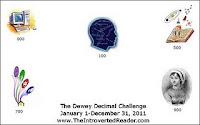
I have spent a lot of entertainment time in Second World War Britain lately: watching The King’s Speech, listening to Old Filth, and now reading Good Evening, Mrs. Craven: The Wartime Stories of Mollie Panter-Downes. More than that, the book that made me realize how very much I had missed reading for the sheer pleasure of it – enough so that my tenure gift to myself was to start reading things I wanted to read, and not things I had to read – was The Guernsey Literary and Potato Peel Society, a beautiful and heartbreaking novel about the German occupation of the Channel Islands. So that book, in a way, led to Col Reads.
Aside from Good Evening, Mrs. Craven, all of these are relatively recent works, and I spent some time during this Persephone Reading Weekend thinking about why the theme seems so pertinent right now. And I had the uneasy realization that it’s probably because the people who actually remember that critical time in history are about to leave us forever. And while many of them – and us, their children and grandchildren – spent a lot of our lives thinking that the Second World War was the last large-scale war the world would ever see, it’s probably a good time to revisit the ugliness that our parents and grandparents lived through and tried to protect us from, before we get to feeling too smug and wind up having to live the nightmare all over again.
Which is an extraordinarily long introduction to why I thought Good Evening, Mrs. Craven was one of the most wonderful book I have read in a while, and why I appreciated the ersatz ethnography of wartime England that Mollie Panter-Downes short stories for The New Yorker has left us all.
Panter-Downes’ stories are not “pretty.” In fact, I’d say they’re quite the opposite: they focus on the “ugly” side of the homefront, the inner turmoil beneath the calm. Since the book is arranged chronologically, we can see shifts in the dominant emotions expressed as the war goes on, from enthusiasm and earnestness in the earliest stories to hopelessness and fear in the middle, to resolve and exhaustion near the end.
Reviewing a collection of short stories is difficult – they are each so different, touching on distinct emotions and situations. They were never meant to hang together, especially by Panter-Downes, who apparently never thought as much of her fiction work as she did of her journalism. And yet I do think the stories hang together, if only because the author chose to focus on small, intimate moments of (mostly) women’s lives, at a time when everything they knew – social roles, class, family – were changing.
So, I thought I would share one of the moments that remains with me most after reading the anthology. “Goodbye, My Love,” was published on December 13, 1941. Newlyweds Ruth and Adrian are spending the last few days before his deployment doing what needs to be done, visiting his parents, seeing friends, keeping up a brave front. When Adrian finally departs, Ruth is devastated. She spends two days trying to get hold of her new situation, and she’s actually optimistic. As she lets herself into her flat on the third day, the phone rings – Adrian’s deployment has been postponed for 10 days, and he’s on the way home:
Ruth heard the click as he hung up, and she hung up slowly, too. For a moment she sat quite still. The clock on the table beside her sounded deafening again, beginning to mark off the ten days at the end of the tunnel. Then her face became drawn and, putting her hands over it, she burst into tears.
Devastating, isn’t it? And yet, although it’s not written, there’s no doubt that Ruth was fabulous when Adrian got home – stylish, sweet, and brave when he left again. This anthology reminded me of what my family went through. My great-grandmother had eight sons, grandsons and sons- and grandsons-in-law in various theaters of battle during the war – one of her sons was lost at Normandy. My father, the youngest child in his family, remembers letters from his older brother (my godfather) fighting in the Pacific. It wasn’t so long ago, but to my children it’s ancient history. As a history student, I know the danger of this – if we don’t remember our history, we may repeat it! I am so glad Mollie Panter-Downes work stands as a testament to the real heartbreaks of war, so real, so intense, so sublimated.
I don’t read a lot of short stories, and reading Good Evening, Mrs. Craven has reminded me what a mistake that is. My hectic life really lends itself to them. I loved reading this book, and can’t wait to read my next Persephone. Thanks to Claire at Paperback Reader and Verity at CardiganGirlVerity for hosting this wonderful weekend of reading! And baci to Bellezza for sending me this lovely Persephone Santa Gift!
Best,
Col























